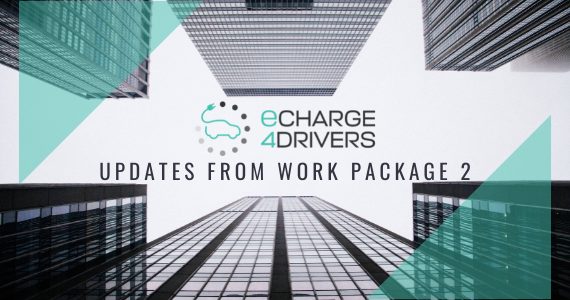The goal of the first stage of the eCharge4Drivers project has been to gather information on and analyse the needs of the users to improve their electric vehicle charging experience and to design and validate the proposed solutions. The second stage has focused on the definition of accessibility requirements for charging stations along with an analysis on tariff structures and incentive schemes for the demonstration phase.
Task 2.1 delivers an explanation on the work performed on the app-based services such as the route planner and the booking service. For both services, we gathered information on the needs of the stakeholders, did a market analysis and once we drafted the designs, and we validated the main functionalities with the users. As a result of this work, two co-functioning route planners will propose a route to the driver to suggest the best locations to stop for charging according to their preferences considering the point of interest, battery status, and autonomy of the vehicle. The booking service will be implemented in various demo sites and will cover short and long-term bookings, different payment methods, and the ability to start or stop the charging session using the app among other functionalities.
In Task 2.2, a smart charging concept and in-situ services like the battery swapping and mobile charging are described. For smart charging, different services have been analysed such as smart charging by the EV user, power constrained smart charging, smart charging towards cost minimisation, smart charging for better battery ageing mitigation, smart charging within the micro grid context, smart charging towards EV/RES synergy, and finally V2X smart charging. The battery swapping is defined for two demo-sites where the user can book a charged battery and change it with the used battery at designated points. Mobile charging on the other hand, involves bringing a trailer with the charged batteries wherever the vehicle is parked.
Last but not least, Task 2.3 focuses on the analysis of tariff structures and incentives. This work includes a series of interviews with five types of stakeholders which can be listed as authorities, CPO’s, MSPs, OEMs, and user associations in order to get their input on different parameters that configure a tariff structure. Incentive schemes to promote the purchase and use of electric vehicles have also been subject to analysis in the interview phase. The gathered information has been summarised and structured in a way that any organisation is able to make use of the data compiling the experiences of different stakeholders regarding the definition of tariffs and incentives. A final section includes a generalised formation of a tariff structure and some recommendations are given to promote efficiency at the charging stations.
The work will be a useful source of information and serve as an input for the development of enhanced route planners, enhanced booking services, enhanced charging control and information services, mobile charging and battery swapping services. The recommendations given in the tariff section will be used in the demonstration phase to evaluate their impact.
